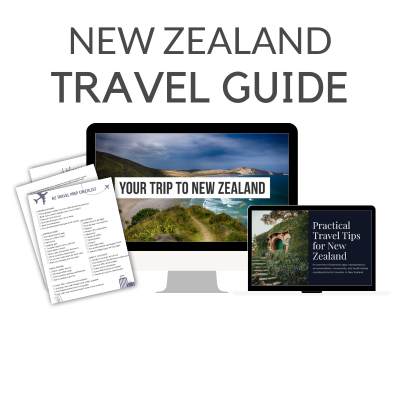Your Move to New Zealand..Everything you need to know!
Apr 01, 2024
Table of Contents
Are you planning to move to New Zealand? I moved my family of 6 to New Zealand in 2013. We were planning only being here for 2 years - but now look at us :). Moving to New Zealand was one of the best decisions I ever made. Check out our story on YouTube
Watch the full video HERE
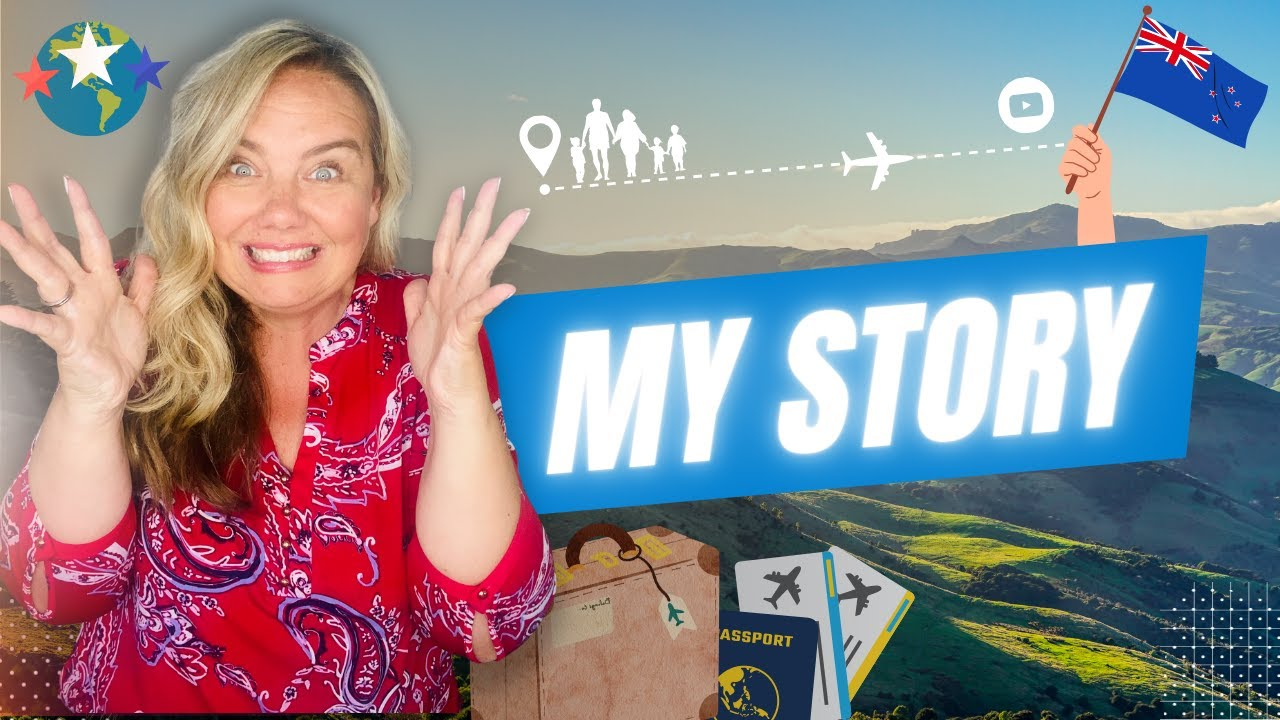
The journey begins with navigating immigration policies, finding employment, and understanding the nuances of Kiwi living. This guide offers a deep dive into the key steps—such as securing the right visa and preparing for the New Zealand job market—that pave the way for a smooth transition. Arm yourself with knowledge and confidence as you embark on your move to New Zealand, a country that promises both adventure and tranquility.
Key Takeaways
-
Getting the right visa in New Zealand depends on your situation and can range from student, work, to retirement visas, each with their own criteria like job offers or skill qualifications.
-
Planning your move involves picking a reputable international mover, smart packing strategies to save space and protect items, aligning timing for discounts, and managing your inventory carefully.
-
Adjusting to life in New Zealand involves considering the cost of living versus salary, choosing the right housing, navigating financial systems like local banking, and immersing yourself in the Kiwi work-life balance and healthcare environment.
Navigating the Visa Process for New Zealand
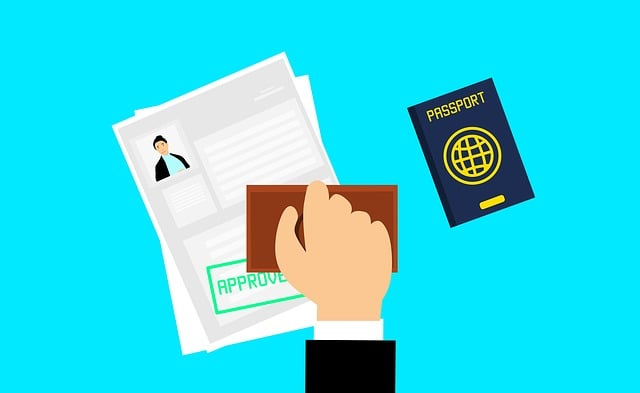
Moving to New Zealand begins with understanding and navigating the visa process. With various options like work visas, student visas, and permanent resident visas, the path to becoming a New Zealander is diverse. Your eligibility for a visa depends on certain criteria, such as a job offer or meeting skilled worker qualifications. This has changed drastically over the last few month - more than it has in years!
Let’s dive deeper into the student visa and visitor visa processes to find the right fit for you.
Choosing the Right Visa
New Zealand offers over 80 different types of work visas, accommodating various professional and personal circumstances. Some of the work visas available include:
-
Entrepreneur Work Visa: for entrepreneurs looking to start their own business in New Zealand
-
Horticulture and Viticulture Seasonal Work Visas: for those with job offers in the horticulture and viticulture industries
-
Skilled Migrant Category visa: for skilled professionals looking to work and potentially settle in New Zealand
These are just a few examples of the work visas available in New Zealand, including the popular working holiday visa.The pathway to the best visa for you is too hard to navigate on your own. This is why I have teamed up with the LARGEST immigration company in New Zealand. Once you join my community, I can get you set up to determine what visa application makes sense for you.
Watch my video where I sit down with an immigration advisor: https://youtu.be/9fTu6PldrO0
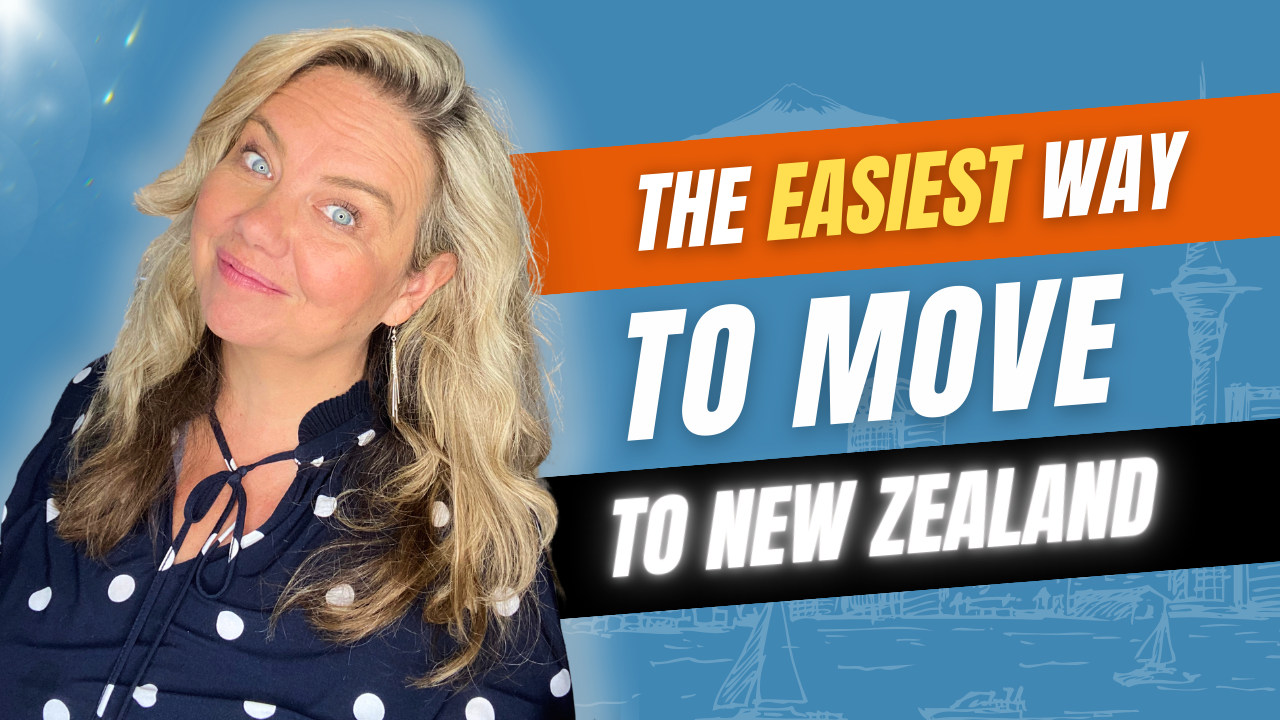
New Zealand offers a range of visa options to suit various needs, including:
-
Family Visas, which permit individuals to stay with their partners or parents who are New Zealand citizens or permanent residents
-
Student Visas, which are necessary for those intending to study for more than three months
-
Retirement Visas, which offer a pathway to residency for those planning to retire in New Zealand
In short, the New Zealand government offers a range of visa options to suit various needs.
Application Essentials
In addition to securing the visa, You’ll need a valid passport, a recent photo meeting specific requirements, and, when necessary, certified English translations of additional documents. For a permanent resident visa, health requirements must be met by applicants under the age of 56. It’s crucial to provide evidence of purpose for visiting, such as proof of travel history, visa rejections, funds for a return ticket, and legal right of entry to your destination.
Lastly, be prepared to acknowledge responsibility for healthcare costs and provide police certificates if you’re over 17 years old and planning to stay longer than 24 months. Remember, specific health standards may necessitate additional medical examinations or chest x-rays.
Planning Your International Relocation
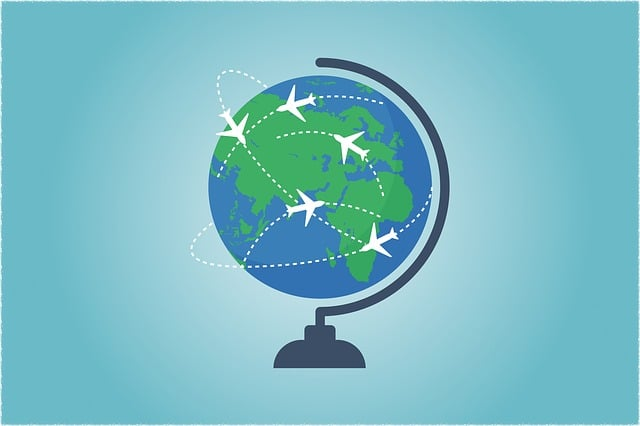
After navigating the visa process, it’s time to plan your international move to New Zealand. This process involves researching international moving companies, estimating the cost of relocation, and devising a strategic packing plan. The moving process may take up to a year for planning and another two to four weeks for shipping your belongings by sea to New Zealand.
If you are serious about considering a move to New Zealand, than you must join my community because everything you need is in there!
Let’s break down these steps to make this relocation process a breeze.
Selecting a Moving Service
Choosing a reliable moving service is key to a smooth relocation process. Look for international moving companies that comply with regulations from entities like the Federal Motor Carrier Safety Administration (FMCSA) and the Federal Maritime Commission. Some movers offer specialized services such as ocean freight transporting goods from port to port, with certain companies promising express shipping to New Zealand within 2-5 working days.
Make sure to seek referrals and customer testimonials, and for financial protection, consider obtaining multiple free quotes from different moving services before making your final decision.
One moving company that I have used and others have used are conroy movers.
Packing Tips for Overseas Moves
Packing for an overseas move requires strategic planning. To conserve space and ensure the safety of your belongings, consider the following tips:
-
Downsize by purging nonessential items.
-
Pack an essentials box with items you’ll need immediately upon arrival.
-
Use vacuum-seal bags for clothes to save space.
-
Use double-walled boxes and proper padding for fragile items.
By following these tips, you can make your overseas move more efficient and organized.
To reduce shipping costs, consider self-packing and timing your move for discounts. Also, keep a detailed inventory of items being moved, and consider photographing your belongings to assist in documenting your items before the move.
Financial Considerations for Settling in New Zealand

Understanding the financial aspects of settling in New Zealand is crucial. Here are some key points to consider:
-
The cost of living in New Zealand is 22% cheaper than in the United States, but average salaries tend to be lower.
-
Living in New Zealand is generally cheaper than living in big cities like New York or San Francisco.
-
However, certain cities like Auckland rank among the most expensive cities in New Zealand.
Additionally, setting up a local bank account will help you manage your finances smoothly during the transition period. Let’s dive deeper into these aspects.
Understanding the Cost of Living
The cost of living in New Zealand is similar to other Western OECD countries, and some cities may be less expensive than many U.S. cities. Here are some examples of housing costs in different regions of New Zealand compared to the United States, with some areas being zealand cheaper than others:
-
Housing in New Zealand costs 35.4% less compared to the United States.
-
Regions like Auckland, Queenstown-Lakes, and Thames-Coromandel are on the higher side.
-
Areas such as the West Coast, Buller, Kawerau, and Waitomo Districts are significantly more affordable.
Grocery costs in New Zealand are on average 14.5% less than in the U.S., but transportation, entertainment, and clothing are respectively 22.8%, 27.7%, and 21.6% more expensive.
Banking and Finances
Managing your finances in New Zealand involves:
-
Setting up a local bank account. You can open a bank account in advance, from 60 days up to a year before arriving in New Zealand, using major banks such as ANZ Bank New Zealand, ASB Bank, and Kiwibank.
-
Prior to transferring funds, ensure that your bank accounts in your home country can accept electronic transfers from a New Zealand bank.
-
Almost all financial transactions in New Zealand are conducted electronically.
Obtaining an IRD Number is critical as it is required for working, earning money, opening a bank account, and filing tax returns in New Zealand.
I highly recommend WISE to do all your international transfers. I have used it for 6 years a love it. It is fast and cheap!
Finding Your New Home in New Zealand
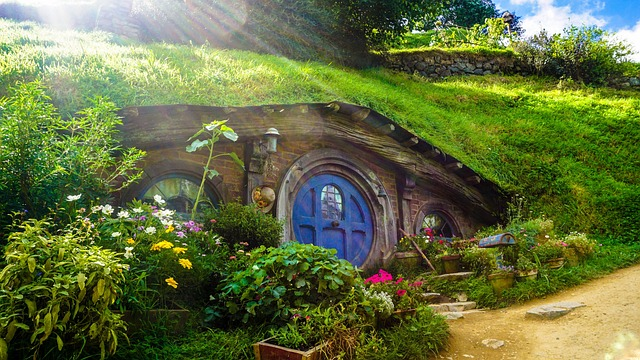
Now that you’ve navigated the visa process, planned your relocation, and understood the financial considerations, it’s time to find your new home in New Zealand. Here are some key points to consider:
-
The average house price in New Zealand is $924,489 as of January 2024, reflecting a decrease of 2.48% over the last 12 months.
-
House prices vary significantly throughout the country.
-
The most expensive area is the Queenstown-Lakes District, with an average house price of $1,781,475.
-
The West Coast region offers more affordable options, such as the Buller District, with an average house price of $339,922.
Let’s explore in more detail.
Housing Options Across New Zealand
Personal preferences and proximity to job locations influence choosing the best area to live in New Zealand. Auckland, the biggest city in New Zealand, is a popular area for expats due to its size and availability of amenities. While it is not the capital city, its appeal remains strong for those seeking opportunities and a vibrant lifestyle.
Shared accommodation, known locally as ‘flatting’, offers an opportunity to live with locals or fellow travelers and can be found through online platforms such as Trade Me, Facebook groups, and Roomies.
The Rental vs. Purchase Debate
The decision between renting and buying a home in New Zealand depends on various factors. Owning a home can provide stability and is a key way to build equity for retirement. However, the costs associated with owning a home include maintenance, renovation, insurance, yearly rates, and potentially body corporate fees, which are not the responsibility of renters.
On the other hand, renting can offer more flexibility and the opportunity to live in more desirable areas that may be unaffordable to buy, such as closer to work or city centers. Thus, the choice between renting and purchasing ultimately depends on one’s willingness and ability to handle property maintenance and the responsibilities that come with homeownership.
Embracing the Kiwi Lifestyle

Embracing the Kiwi lifestyle is a crucial part of settling in New Zealand. Known for its relaxed pace of life, New Zealanders enjoy a strong work-life balance complemented by an appreciation for leisure time and relaxation. The country’s diverse and concentrated landscape encourages a variety of outdoor activities, and the temperate climate allows residents to enjoy an outdoor lifestyle throughout the year.
By embracing these aspects, you can fully immerse yourself in the Kiwi lifestyle and make the most of your time in New Zealand.
Work-Life Balance and Social Scene
New Zealand was voted No.1 for future outlook and No.2 for lifestyle in the 2021 HSBC Expat Explorer survey, indicating a highly regarded global perception of the country’s work-life balance. The work-life balance New Zealanders enjoy includes easy access to nature and various leisure activities, even within proximity to major urban areas.
Expats can immerse themselves into the New Zealand lifestyle by actively participating in community events, local meetups, and sports clubs, fostering social integration.
I found Kiwis to be among the nicest and most welcoming people, making the move to New Zealand easier. Don't be afraid to put yourself out there and establish roots early on. You'll thank yourself in the long run!
Health and Well-being
New Zealand also offers a hybrid healthcare system, where public and private options are available, ensuring residents can access subsidized healthcare. Let’s delve deeper into these aspects.
Navigating the healthcare system is an important part of maintaining well-being in New Zealand. The public healthcare system offers free hospital care and emergency services and is generally low-cost or free for citizens, permanent residents, and those holding a work visa valid for at least two years. Private health insurance provides additional benefits such as the choice of specialists and hospitals, reduced wait times for appointments and surgeries, and may cover aspects not included in the public system, like travel support.
Non-residents and visitors on certain visa types from other countries are advised to secure medical insurance from their home country due to the costs of healthcare services in New Zealand.
Check out my YouTube video for a Deep Dive into New Zealand Culture!

Job Hunting in New Zealand
Let's explore what it means to look for job opportunities in New Zealand. The country welcomes foreign professionals, and many have successfully found employment across various industries. Skilled professionals in fields such as medicine, teaching, IT work, and hospitality are particularly in demand.
Furthermore, regions like Auckland and Canterbury experience the biggest shortages of skilled labor, opening opportunities for immigrants.
Let’s delve deeper into the job market and how to craft a compelling resume for NZ employers. Check out my YouTube video on 5 insider tips for getting a job in New Zealand!
In-Demand Skills and Industries
New Zealand’s job market has been robust, with a significant need for highly skilled workers. Some of the highly sought-after occupations in New Zealand include:
-
Registered nurses
-
Midwives
-
General practitioners
-
Specialists like anaesthetists, paediatricians, and surgeons
In addition to the healthcare sector, the educational sector also requires more teachers at all levels. Salaries for high school teachers range between 58,000 NZD and 71,000 NZD, and are even higher for university lecturers and professors.
Skilled tradespeople, such as electricians and plumbers, are consistently needed, with opportunities including apprenticeships and hourly wages ranging from 33 to 39 NZD. Engineers in fields such as civil, structural, and environmental are in demand due to large construction projects, with top-tier salaries achievable in these fields.
Crafting Your Resume for NZ Employers
Crafting a resume that appeals to New Zealand employers is a key aspect of your job hunting journey. New Zealand CVs should:
-
Be two to three pages long
-
Clearly present relevant work experience, skills pertinent to the job, and contact details in a well-organized format
-
Provide examples of your skills and how you have applied them in practical situations, ensuring these are aligned with the job you are applying for.
Keeping the CV updated with the latest contact information, including a current phone number and email address, is crucial for maintaining professional communication with potential employers. Finally, including referee contact details who are well-informed about your job search and intentions, along with writing a tailored cover letter, completes a compelling job application.
Check out my CV, Resume, and Cover Letter template bundle here, perfect for job hunting in New Zealand.

Setting Up Your New Life
Embarking on your new life in New Zealand involves a few more steps. To drive legally in the country, new residents may need to obtain a New Zealand driver’s license. Additionally, new residents should familiarize themselves with the healthcare services, including registering with a local GP and understanding the public health system.
Let’s break down these steps further.
Transportation and Driving
Driving in New Zealand requires some preparation. Most Americans moving to New Zealand choose to sell their cars in the USA due to high shipping and import fees and a long vehicle inspection process. However, if you decide to bring your vehicle, it can be shipped via sea freight.
Converting an American driver’s license to a New Zealand license involves the following steps:
-
Fill out a form provided by the Waka Kotahi NZ Transport Agency.
-
Send the completed form to the agency.
-
Make sure to apply for a new driver’s license within 12 months of arrival in New Zealand.
The cost for initially registering a vehicle ranges from $150 to $400 NZD, and you must renew your vehicle registration every 6 to 12 months at an average cost of approximately $100 NZD for 12 months.
Navigating the Health System
Navigating the health system in New Zealand involves understanding the public healthcare system and the role of private health insurance. In the event of injuries from an accident, treatment is free under New Zealand’s ACC scheme, regardless of who caused the accident. To register with a general practitioner, you’ll need a National Health Index (NHI) number, which keeps track of personal medical information securely and confidentially. It can take up to three months to be processed into the New Zealand healthcare system, during which time private medical insurance can offer coverage.
In medical emergencies requiring urgent attention, the number to dial for an ambulance is 111. In Wellington, Wellington Free Ambulance services are free; however, other areas may charge for using an ambulance service.
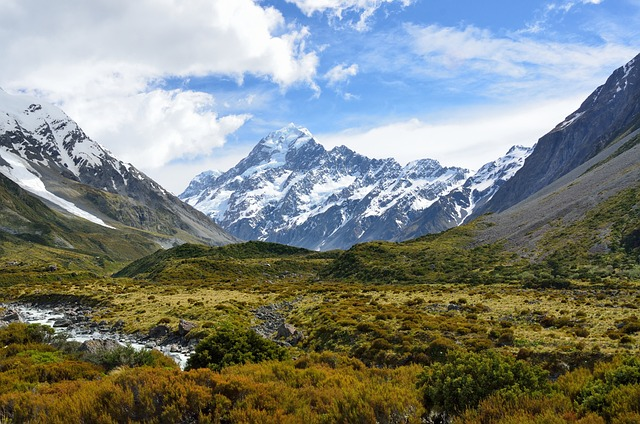
Discovering New Zealand's Natural Splendor
New Zealand is renowned for its natural splendor, offering a wide array of scenic beauty, including:
-
Surf beaches
-
Native forests
-
Snow-covered volcanoes
-
Majestic Southern Alps
-
Braided rivers
-
Deep fjords
Whether you’re exploring the stunning North Island or experiencing the serene beauty of the South Island, the natural beauty of New Zealand is sure to captivate you.
Let’s explore the outdoor adventures that await you and how the climate influences the lifestyle in New Zealand.
Outdoor Adventures Await
New Zealand is a paradise for nature lovers and outdoor enthusiasts. The country boasts a range of popular hiking trails such as:
-
Hooker Valley Track
-
Tongariro Alpine Crossing
-
Roys Peak Track
-
Queenstown Hill Walkway
Besides hiking, New Zealand offers extensive outdoor activities, including mountain biking and climbing, catering to different interests and skill levels.
Engaging in outdoor activities is a common pastime for New Zealanders and serves as an excellent way for expats to socialize and build connections within their new community.
The Climate's Influence on Lifestyle
New Zealand’s temperate climate supports an active lifestyle by providing reversed seasons and mild weather conditions ideal for year-round outdoor activities. The diverse and extensive infrastructure, including walking, hiking, and cycling trails, caters to a range of outdoor interests influenced by New Zealand’s generally mild climate. Activities such as hiking the Tongariro Alpine Crossing provide active engagement with the country’s various landscapes and challenge enthusiasts with its significant elevation gain. Temperatures also vary depending on what part of the country you are in.
While higher temperatures may extend the season for outdoor pursuits, increased rainfall intensity could introduce challenges such as flooding, affecting trail accessibility and the natural landscape.

Education for Expatriate Families
For those moving with their families, understanding the education system in New Zealand is crucial. The country offers a high standard of education, which includes public, private, and international schooling choices for expatriate families. Extracurricular activities are an integral part of the educational experience in New Zealand, fostering a well-rounded education for students.
Let’s delve deeper into the schooling options and the experience of raising kids in Kiwi culture.
Schooling Options
New Zealand offers a high standard of education, which includes:
-
Public, private, and international schooling choices for expatriate families
-
Subsidized early childhood education
-
Free state primary and secondary schools
-
Public schools are known for their quality, providing free education and may be co-educational or single-sex, typically with a secular approach
-
The National Certificate of Educational Achievement (NCEA), which is the main secondary school qualification in New Zealand and is recognized internationally.
Living in a particular area can be crucial for schooling, as many public schools in New Zealand have catchment zones; however, out-of-zone enrolment is an option via a ballot system.
Moving your kids into a new culture can take time and sometimes getting a tutor to help your child adjust or just fill in the gaps during the move can really help with the transition. Check out Tutorhunt to find a tutor near you.
Raising Kids in Kiwi Culture
Raising kids in New Zealand offers a great environment for families, with a strong sense of community. Families in New Zealand have access to affordable, quality education. Childcare costs in New Zealand are 41.0% less than in the United States.
Participation in extracurricular activities can help expatriate children integrate into the community and develop friendships with local peers, enhancing their overall Kiwi cultural experience.
Check out my YouTube video about the New Zealand education system for an in-depth look!
Summary
In conclusion, moving to New Zealand can be a rewarding experience, offering a quality lifestyle, stunning natural beauty, friendly locals, and a high standard of education. With careful planning and understanding of the visa processes, international relocation, financial considerations, job market, and the Kiwi lifestyle, you can navigate a successful move to New Zealand. The journey might seem overwhelming at first, but with this comprehensive guide, we hope you feel more confident and excited about starting your new life in the land of the long white cloud.
Frequently Asked Questions
Can US citizens move to New Zealand?
Yes, as a US citizen, you can apply for various visas to live and work in New Zealand, including residence visas for permanent settlement if you meet certain criteria. So, it is possible to make the move!
Is it difficult to relocate to New Zealand?
Yes, relocating to New Zealand can be challenging due to strict immigration requirements, such as age restrictions and the need to be a skilled worker. Consider exploring the available visa options if you're interested in moving there.
How much money should you have before moving to New Zealand?
You should have between $15,000 – $20,000 before moving to New Zealand. This amount can vary based on factors such as the size and distance of your move, family size, etc. My first move to New Zealand in 2013 - I only came with around $5000 with 4 kids :). Times have changed but depending on your work situation, the amount is flexible.
Can I move to New Zealand without a job offer?
It is possible to move to New Zealand without a job offer, but it might be more challenging as the immigration process typically requires a certain number of points on your Expression of Interest to qualify without one. It's recommended to consider the duration of your stay, the demand for your skills, and the potential need for a job offer before applying for a visa.
What are the different types of visas available for moving to New Zealand?
New Zealand offers over 80 different types of visas, including work, student, family, and retirement visas, to cater to various professional and personal circumstances. So, you can choose the one that fits your situation best.
I am here to help you with your move to New Zealand! Start with my FREE course on how to get started...https://www.kiwiamericans.com/opt-in-6a4c73b5-dab8-4dcc-af10-fbb2114f8af0
SUBSCRIBE TO LEARN MORE
I send out weekly emails to update you on all that is happening in New Zealand!
We hate SPAM. We will never sell your information, for any reason.



